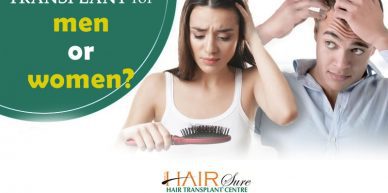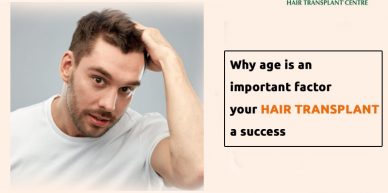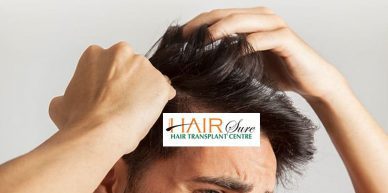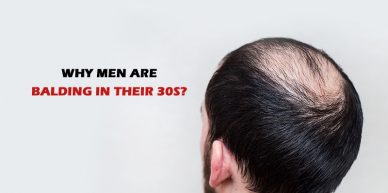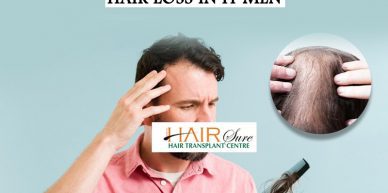Hair transplants are a cosmetic procedure for both men and women experiencing hair loss, often due to hereditary male or female pattern baldness. Hormonal changes, medical conditions, or trauma can also cause hair loss. The procedure involves taking hair follicles...
Why am I losing body hair at 25

Various factors, including stress, hormonal changes, and nutritional deficiencies, can cause hair loss at 25. Telogen effluvium, a temporary condition, occurs when a significant stressor causes a large number of hair follicles to enter the resting phase of the hair growth cycle simultaneously. Hair loss in young men and women can be reversed with proper treatment, but genetics and medical conditions can make regrowth more challenging.
Does stress cause body hair loss?
Yes! Stress is known to play a role in the disorder known as telogen effluvium, which is linked to hair loss. The excessive shedding or thinning of hair is a characteristic of telogen effluvium, a hair loss. It happens when a sizable portion of hair follicles prematurely enter the resting (telogen) phase of the hair development cycle, which increases shedding.
Stress can interfere with the regular hair growth cycle and can be physical and mental. The hair growth cycle can revert to normal, and regrowth may occur if the underlying stressor is treated and cured. Stress-related hair loss is often transient.
People may encounter a range of pressures at the age of 25 because of their jobs, relationships, changing lifestyles, or other circumstances. Managing stress with healthy coping strategies, such as consistent exercise, mindfulness practices, relaxation techniques, and asking friends, family, or mental health experts for help is critical.
If you think stress might be a factor in your excessive body hair loss, you should speak with a dermatologist or other healthcare provider. They can offer advice on stress management, enhancing general hair health, evaluating your condition, and pointing out possible causes.

Common factors that could contribute to hair loss include:
- Genetics:
The probability of developing hair loss is determined mainly by your family history. You may be more vulnerable if your parents or other close family members have a history of premature hair loss.
- Hormonal changes:
Changes in androgen levels, in particular, can affect hair growth. Hair loss can be caused by diseases such as hormonal imbalances in men or women or conditions like PCOS in women.
- Nutritional deficiencies:
Hair health can be impacted by inadequate consumption of certain nutrients, including vitamins and minerals. For example, it is known that iron deficiency is linked to hair loss.
- Medical conditions:
Several medical illnesses, such as autoimmune diseases, thyroid issues, and alopecia areata, may cause hair loss. Even though there may not be any underlying medical conditions, speaking with a healthcare provider is imperative.
- Medications:
Hair loss is a possible side effect of several drugs. It is crucial to talk to your healthcare physician about any regular pharmaceutical regimen to look into potential mitigations or other possibilities.
- Poor health care habits:
Tight hairstyles, regular use of heat styling tools, and excessive use of harsh hair care products can cause hair damage and loss.
- Diet and lifestyle:
Health issues can affect not just the condition of your hair but also your general health when it comes to poor diet, inactivity, and lifestyle choices.
- Reduced blood flow:
Stress may cause blood vessels to tighten, which lowers blood flow to the body’s skin’s hair follicles. Hair follicles require proper blood flow to get nutrients, and a decrease in blood flow might affect the health of the hair follicles.
- Compromised immune functions:
Long-term stress can weaken the immune system and cause inflammatory reactions that could damage hair follicles. Alopecia areata, a form of hair loss, may ensue from this.
- Psychological impact:
Psychological disorders like anxiety and depression can arise as a result of stress. Certain people may have hair-pulling (trichotillomania) tendencies, which can exacerbate hair loss.

- Hair styling factors:
Using harsh hair care products or tugging or twisting hair (trichotillomania) are two activities that can negatively affect the health of your hair and may be exacerbated by stress.
- Skin conditions:
Body hair loss may be caused by infections, skin conditions, or inflammation of the hair follicles.
Consult a healthcare professional or dermatologist if you’re experiencing significant hair loss. They can identify the underlying cause and recommend suitable treatments or lifestyle changes. Consultation is crucial for those experiencing hair loss.
Main symptoms and causes of hair loss:
Several things can contribute to body hair loss in those over 25, and the symptoms can change based on the underlying cause.
Potential symptoms of hair loss:
- Thinning hair:
In some areas of your body, you could notice that the hair is getting thinner or less dense.
- Bald spots:
Some persons may develop prominent bald spots on their bodies as a result of complete hair loss in some places of their bodies.
- Increased shedding:
It may indicate excessive hair shedding if more hair falls out while showering or grooming.
- Changes in hair texture:
The remaining hair may start to get brittle or finer in texture.
- Redness or itching:
In certain instances, redness or itching in the impacted areas may coexist with body hair loss.
- Pain or discomfort:
In rare cases, pain or discomfort in the affected areas may be linked to hair loss.
- Visible hair follicles:
You might be able to see the hair follicles or notice a difference in the skin’s look in those regions if the hair loss is severe.
- Scalp hair involvement:
You might also observe alterations in scalp hair, including a receding hairline or crown thinning, if body hair loss is a component of a more widespread pattern of hair loss.
You must speak with a dermatologist or other healthcare provider if you are experiencing body hair loss or other worrisome symptoms. With a comprehensive examination, a review of your medical history, and, if necessary, additional testing, they can assist in determining the underlying cause. Appropriate treatment options can be suggested based on the diagnosis.
At Cyber HairSure, we are dedicated to a policy of offering patients unmatched services. At Cyber HairSure Advanced Hair Transplant Clinic, all of your hair-related worries can be expertly resolved, and you can rest assured that your smiles won’t flinch again. Enter Cyber HairSure and exit with the desired appearance.
Cyber HairSure can assist in determining the precise reason for hair loss and offer suitable treatment solutions that are suited to the requirements of the individual. Always consult a medical expert when you have questions about your health. Always consult a medical expert when you have questions about your health.
We, at Cyber HairSure, are committed to providing matchless services to all our patients. All your concerns regarding hair problems can be flawlessly sorted at Cyber HairSure Advanced Hair Transplant Clinic, guaranteeing that you will be left with smiles that won’t fall again. Walk into Cyber HairSure and walk back with the look that you desire. Call 040 49540202 / 8331020202 or email us at cyberhairsure@gmail.com to book your consultation. Visit our website, Hair Transplant Clinic, to know more.


